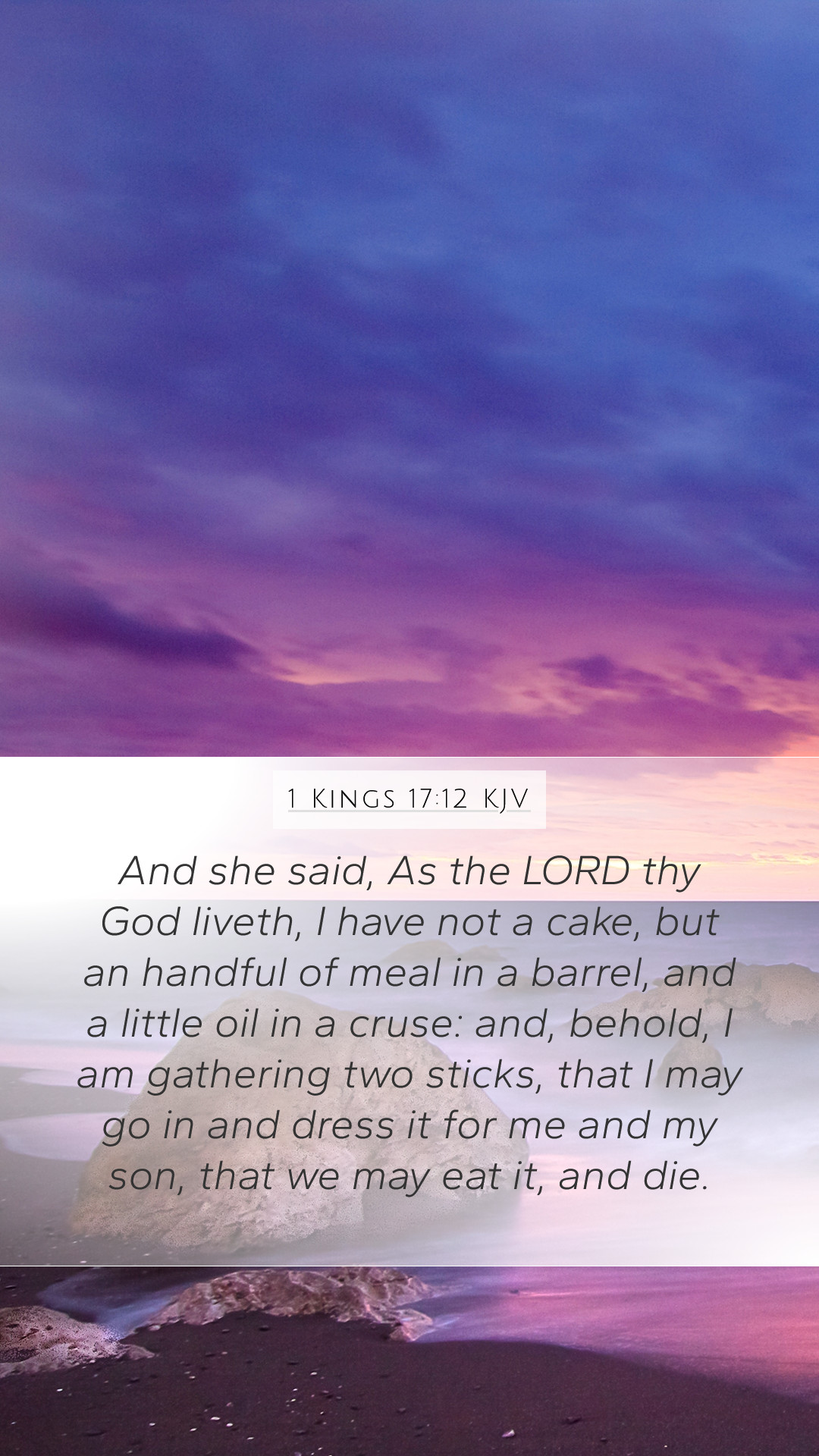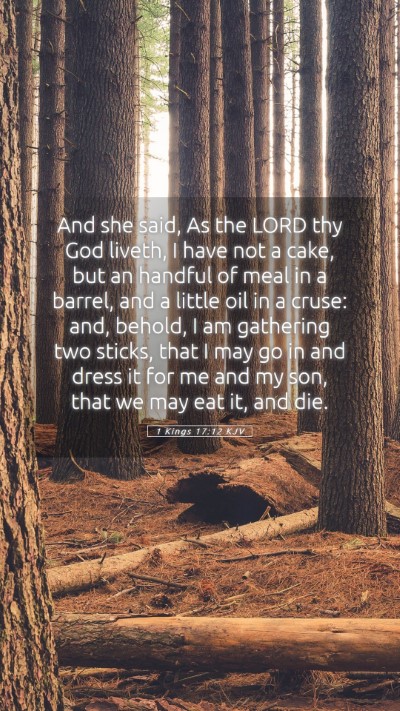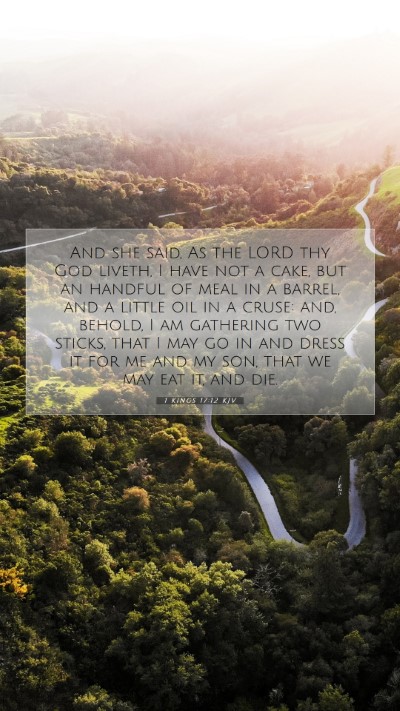Bible Verse Meaning and Commentary on 1 Kings 17:12
The verse 1 Kings 17:12 states, "As surely as the LORD your God lives," she replied, "I don't have any bread—only a handful of flour in a jar and a little olive oil in a jug. I am gathering a few sticks to take home and make a meal for myself and my son, that we may eat it—and die." This passage depicts the encounter between the prophet Elijah and a widow in Zarephath during a time of severe famine.
Bible Verse Interpretations
In this verse, we find a profound expression of despair and hopelessness. The widow, faced with the dire reality of famine, is on the brink of giving up. The few ingredients she possesses—flour and olive oil—symbolize not just physical sustenance but also the fragility of life during difficult times.
Understanding the Context
According to Matthew Henry's Commentary, this narrative emphasizes God's providence and the miraculous provision in times of need. The widow’s response reflects the depths of her plight; she is preparing for a final meal, a poignant moment illustrating human vulnerability.
Albert Barnes elaborates on this bleak situation by highlighting the widow's acknowledgment of her helplessness. In the face of imminent death due to starvation, her statement is filled with emotional weight and signifies a critical moment of impending hopelessness.
Key Takeaways from the Commentary
- Desperation and Faith: The widow's words juxtapose her desperate situation with her possible faith, which is vital in scriptural analysis.
- God’s Provision: The verse anticipates the miraculous intervention by God through Elijah, underscoring themes of faith and divine help.
- Human Limitations: The limitation expressed by the widow mirrors the broader human condition, suggesting that self-sufficiency can often lead to despair.
Insights from Adam Clarke's Commentary
According to Adam Clarke, the widow's words exhibit total depletion—her acknowledgement of survival means peeling back the layers of despair. Clarke points out that this situation also serves to highlight Elijah's role as a prophet who relied not on his own strength but on God's directives, which calls for a deeper examination of faith in spiritual leaders.
Cross References for Further Study
- 2 Kings 4:1-7 - The widow and the oil - another miraculous provision during a time of need.
- Matthew 14:15-21 - Jesus feeding the five thousand - illustrates God's provision in impossible situations.
- Luke 4:25-26 - Jesus references the widow of Zarephath in his teachings, highlighting her faith.
Application of the Verse
Applying 1 Kings 17:12 to daily life encourages believers to trust in God's provision even in dire circumstances. The widow's situation invites reflection on personal areas of hopelessness and underlines the importance of faith in God's promises.
Conclusion
In-depth Bible verse analyses such as those provided by Matthew Henry, Albert Barnes, and Adam Clarke serve as essential Bible study resources for comprehension. Understanding Scripture in its historical context and the significance of narratives like that of the widow at Zarephath enlightens our approach to applying key lessons from the Bible to everyday life. This verse reminds us that even when faced with the toughest trials, God’s presence is near those who look to Him in faith.


